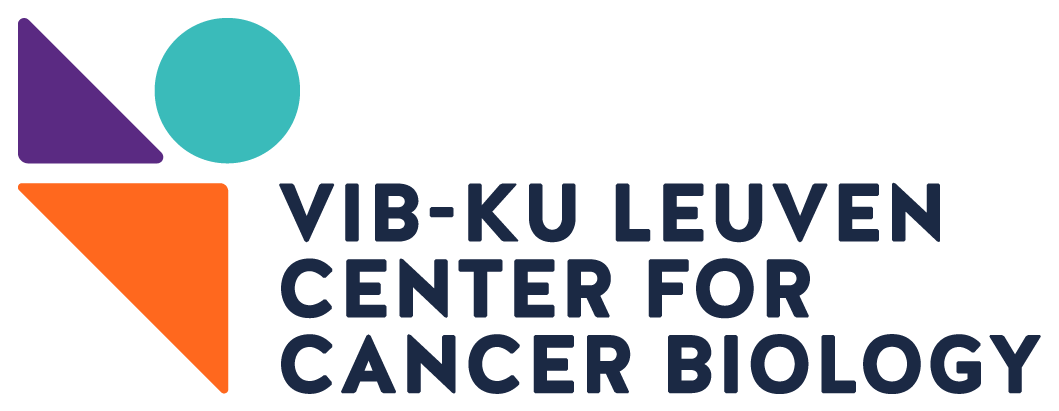Research Focus

Background: the science
The Carmeliet lab is focusing on unraveling the molecular and cellular basis of the formation of blood vessels (angiogenesis) in health and disease, and in particular the role of vascular metabolism and vascular heterogeneity herein, with the ultimate goal to identify novel therapeutic pro- or anti-angiogenic strategies.

Improving anti-angiogenesis therapy
Current anti-angiogenesis therapies (AATs), by targeting the pro-angiogenic factor VEGF, suffer resistance and insufficient efficacy. The Carmeliet lab explores opportunities to overcome these limitations and to improve AAT by focusing on endothelial cell metabolism, endothelial heterogeneity and, in particular, endothelial immunity. Recent projects, combining single-cell transcriptomics with bulk multi-omics (transcriptomics, (epi)-genomics, proteomics & metabolomics) revealed novel insights in endothelial cell metabolism and heterogeneity in health and disease that can help design novel AAT strategies.

IMECs
Also, traditional immunotherapy – targeting cancer and immune cells – is an approved treatment for certain cancers. Its success is often limited by resistance and insufficient efficacy, partly due to inadequate infiltration/activation of anti-tumor immune cells in the tumor milieu. Recent successful efforts in generating several single cell transcriptome atlases of endothelial cells from various tissues of preclinical models and clinical patient samples in health and disease revealed the existence of previously unknown endothelial cell subtypes, including endothelial cells with a resident endothelial stem cell signature, and endothelial cells with a putative immuno-modulatory role (termed "IMECs"). An important future focus will be to study in more depth the activities and role of these IMECs and to explore whether targeting IMECs can offer opportunities for "alternative immunotherapy".

The Group
Prof. Peter Carmeliet recently started a twin lab, the Laboratory of Angiogenesis and Vascular Heterogeneity, at the Department of Biomedicine at Aarhus University in Aarhus, Denmark (https://international.au.dk/) which is closely intertwined with his lab at the VIB-KU Leuven, Leuven, Belgium
Both the Leuven and new Aarhus lab will function as one virtual lab, and synergistically combine their joint forces and focus to study similar fundamental questions in vascular biology and angiogenesis, and to develop more efficiently new vascular medicine. There will be frequent interactions and exchange of junior/senior scientists and lab technicians between both labs, offering unique opportunities for multi-disciplinary training at both locations. Particular complementary settings and conditions at each location will create unprecedented extra-added opportunities to quantitatively and qualitatively increase the research output and translational development at a higher level.

IMECs
Translation - achievements
The Carmeliet lab has developed new anti-angiogenic agents (such as anti-PlGF monoclonal antibody for the treatment of pediatric medulloblastoma, with successful outcome in phase I clinical trial) and a metabolite treatment for lymphedema (phase I). In addition, the Carmeliet lab together with the Mazzone lab, co-founded the biotech spinoff Montis Biosciences, to develop novel immune-oncology therapies based on targeting the interaction between perivascular macrophages and the tumor vasculature (see https://www.montisbio.com).
Translation – aspirations
A major challenge of current medical research is to translate the obtained high-profile insights into new medicine. Big pharma is not interested in too early-stage scientific results (even when published in high-profile journals) because of the risk that these candidates are insufficiently validated for drug development, while academic scientists generally lack funds to bridge this gap ("the valley of death") by providing more validation. As such, enormous budgets are invested in generating top academic research results, while these investments largely fail to create societal impact through the development of new treatments. The Carmeliet lab aspires to not only discover new therapeutic targets, but also to "bridge the valley of death" in order to improve drug development. To this end, innovative technologies - to accelerate target discovery & validation - were developed. We developed an artificial intelligence (AI)-based tool using single cell RNA-sequencing datasets of endothelial cells, to predict a function for endothelial “unknown” genes. In addition, we developed a novel technology to generate endothelial cell knockout mice by using lipid nanoparticles (LNPs) that are selectively taken up by endothelial cells.
Current fundamental and translational topics:
- Endothelial cell heterogeneity between and within healthy tissues, tumor types or other diseased tissues/organs
- Immune surveillance role of the endothelium
- Development of tumor EC specific genome-scale metabolic models (GEMs) to predict tumor-tailored endothelial metabolic targets and define approaches to overcome resistance to current anti-angiogenesis therapy
- Analysis by single cell analysis of different modes of blood vessel formation in cancer and other pathologies (angiogenesis, vessel cooption, intussusceptive growth), their relative contribution and importance in different tissues and different conditions, and the underlying regulatory mechanisms
- To apply the in-house developed artificial intelligence (AI)-based software tool and machine learning to identify “unknown” functions for endothelial genes
- Functional validation of selected targets defined by single cell multi-omics analysis (spatial, epigenome-transcriptome, interactome) and/or in silico GEM prediction
- To screen the role of a large number of EC targets in vivo, we developed in-house a technology to generate rapidly EC knockout mice, based on injecting EC-selective lipid nanoparticles (LNPs) containing a single guide RNA (sgRNA-LNP(EC) ) against target genes in mice (expressing Cas9 selectively in ECs)
- Drug development against selected EC targets
- Studies into regenerative medicine approaches for kidney disease/kidney transplantation and liver regeneration
- Molecular regulation of cellular interactions between perivascular macrophages and tumor endothelial cells involved in immune reactions against solid tumors (with Montis Biosciences, a spin-off of KU Leuven and VIB with Droia Ventures, based on research findings of the Carmeliet and Mazzone labs)
- Clinical phase II trial to test ketogenic diet to promote lymphatic growth / function in lymphedema patients (UZ Hospital Leuven)
- Analysis of the role and therapeutic targetability of the lung endothelium in COVID-19 disease, and development of new diagnostic and predictive COVID-19 tests and therapies.
